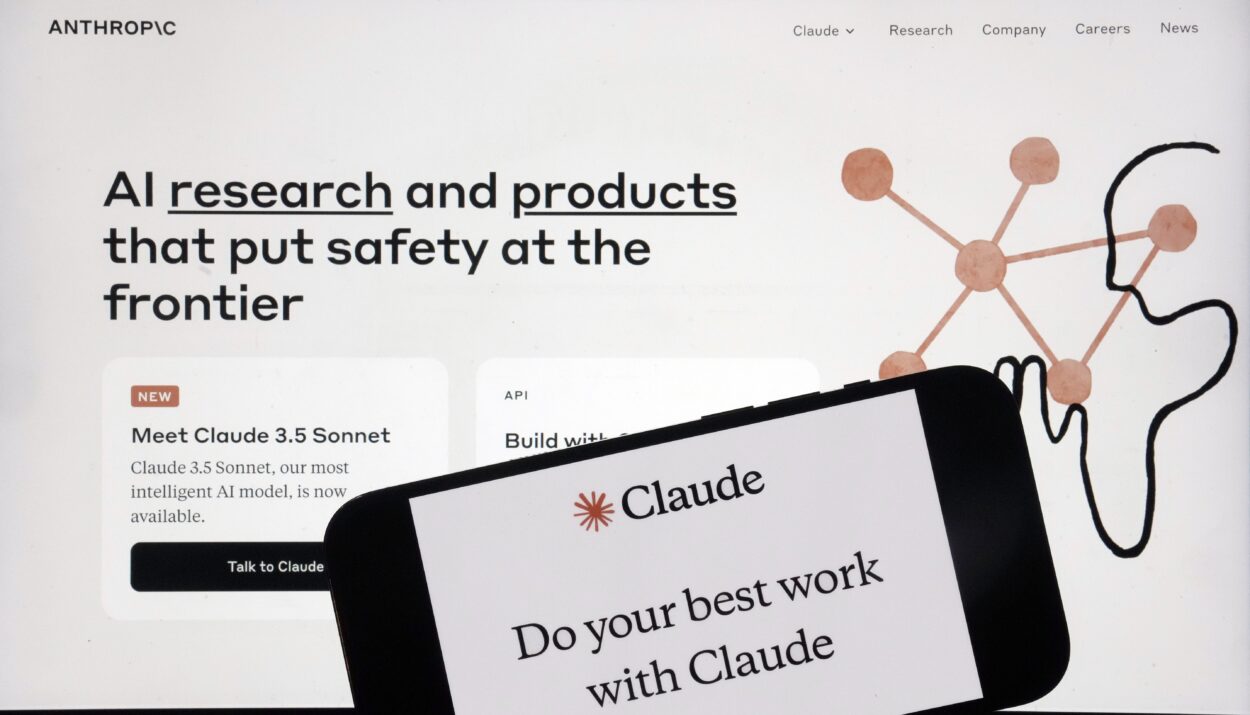In a groundbreaking legal decision, a US federal judge has ruled that AI companies can train models on copyrighted books, as long as those books are obtained legally. The ruling, issued Monday by Judge William Alsup in San Francisco, represents the first major legal interpretation of how fair use applies to generative AI systems.
The decision marks a partial victory for Anthropic, the company behind the Claude chatbot, which had been sued in 2024 by authors Andrea Bartz, Charles Graeber, and Kirk Wallace Johnson for allegedly using millions of copyrighted books to train its AI.
Fair Use Covers Legally Purchased Books
Judge Alsup ruled that using lawfully purchased books — including those digitized by Anthropic — to train AI systems constitutes fair use, calling the use “exceedingly transformative.”
“All Anthropic did was replace the print copies it had purchased… with more convenient space-saving and searchable digital copies,” Alsup wrote.
The judge emphasized that this use was non-commercial, did not create new copies for distribution, and fundamentally changed how the works were being used — key tests in determining fair use.
Anthropic welcomed the decision, saying their training “turns a hard corner” from replication and instead creates new, transformative systems that foster scientific progress.
But Piracy Allegations Head to Trial
However, the judge also allowed the authors’ piracy claim to proceed, finding that Anthropic downloaded millions of copyrighted books from pirate sites as part of its effort to build a central AI training library.
“We will have a trial on the pirated copies… and the resulting damages,” Alsup wrote, leaving open the possibility of statutory damages of up to $150,000 per work — potentially amounting to billions in liability.
The trial is scheduled for December, focusing on whether Anthropic’s use of pirated materials constitutes willful copyright infringement.
Authors React: Mixed Signals
The Authors Guild praised the judge’s recognition of the piracy issue, calling it “outrageous,” but strongly disagreed with the court’s conclusion that scanning books for training purposes is fair use.
“The impact of this decision for book authors is actually quite good,” said Authors Guild CEO Mary Rasenberger, noting that damages for piracy could be substantial.
Meta Also Wins, For Now
In a related decision this week, Meta won a separate case brought by 13 authors, including Sarah Silverman, over its use of pirated novels to train its LLaMA model. Judge Vince Chhabria ruled in Meta’s favor because the plaintiffs failed to prove the AI’s use of their works harmed the market.
However, the judge noted that future cases could go differently if stronger evidence is presented.
What It Means for AI and Copyright
Legal experts say these rulings may signal that fair use protections can apply to AI training — especially when content is obtained lawfully. But they caution that AI companies cannot scan books freely, and the issue of piracy and damages remains very much alive.
“These decisions give AI firms a roadmap — but they’re not a blank check,” said AI lawyer Ray Seilie. “With appeals likely, everything could still change.”
For now, the Anthropic ruling sets a precedent that could influence the future of AI development, content ownership, and how the courts navigate copyright in the age of artificial intelligence.
Disclosure: This article does not represent investment advice. The content and materials featured on this page are for educational purposes only.
Related:
Kalshi Hits $2 Billion Valuation as Prediction Markets Go Mainstream
S&P 500 Nears All-Time High After Stunning Rebound from April Lows
Trump rebukes Israel and Iran hours after ceasefire: Latest Updates
Ceasefire “Now in Effect” as Israel and Iran End 12 Days of War — But Deadly Strikes Continue
Trump Announces Ceasefire Between Israel and Iran
Why Oil Prices Plunged and Stocks Rose After Iran’s Missile Attack on US Bases
Markets Brace for Chaos as Strikes, Inflation, and FED: What to watch this week










